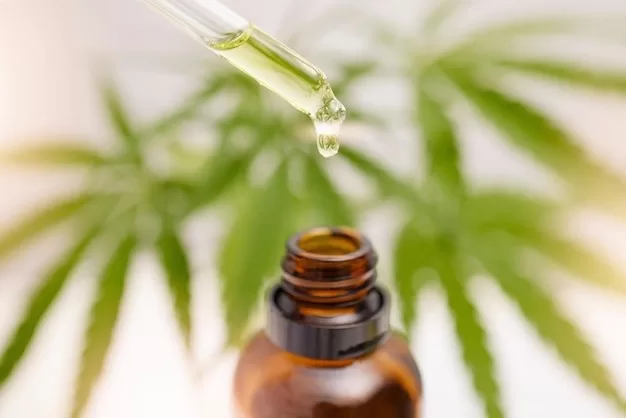Recently, the potential benefits of Cannabidiol (CBD), a natural compound found in cannabis plants, have become a prominent topic of discussion and research.
Specifically, the usage of CBD for anxiety and depression has received significant attention.
This article provides a deep dive into the topic, explaining the science behind the potential benefits, the legality of its use, its efficacy, safety implications, and much more.
Table of Contents
What Is CBD?
CBD, or Cannabidiol, is one of the many constituents of the Cannabis sativa plant, commonly recognized as marijuana or hemp.
It’s a non-psychoactive compound, implying it doesn’t induce the “high” sensation often associated with cannabis use.
This characteristic makes CBD an intriguing option for those seeking potential relief from anxiety, depression, and other health conditions without the mind-altering effects of marijuana or certain pharmaceutical drugs.
Is CBD Legal?
CBD’s legality is a complex issue. Although it’s a component of marijuana, it can also be derived from the hemp plant, a cousin of the marijuana plant.
In many locations, CBD extracted from hemp is legal, provided it contains less than 0.3% THC (Tetrahydrocannabinol), the psychoactive compound in marijuana.
However, regulations vary across regions, so it’s essential to understand the legal landscape in your area before using CBD.
CBD and Mental Health: An Emerging Field of Research
Anxiety and depression are common mental health disorders that can have devastating impacts on health and well-being.
According to the World Health Organization (WHO), depression is the single largest contributor to global disability, while anxiety disorders rank sixth.
In recent years, researchers have explored CBD’s potential role in easing symptoms of these conditions. CBD interacts with the body’s endocannabinoid system, which plays a critical role in mood regulation and stress response, potentially offering relief from anxiety and depression.
CBD for Anxiety and Depression: What Does the Research Say?
Several studies suggest that CBD may have anti-anxiety effects. For instance, a 2011 trial tested CBD on participants with Social Anxiety Disorder (SAD) undergoing a simulated public speaking test, finding that compared to a placebo, CBD significantly reduced anxiety and discomfort.
Another study in 2019 tested different CBD doses on men taking a similar test and found that a particular dose of CBD significantly reduced participants’ anxiety.
The Elite Brands of CBD Oil 2023
After thorough research, we’ve identified the top brands for CBD oil for anxiety. They offer clean, potent products derived from organic sources. Each brand delivers a unique set of benefits, allowing you to choose the perfect match for your needs.
1. FAB CBD: The Apex Brand
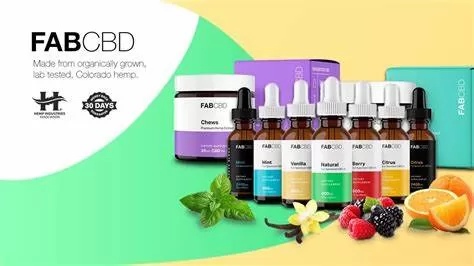
Renowned for its full-spectrum CBD oils available in various strengths and flavors, FAB CBD tops our list. Higher potencies, like 1200mg and 2400mg, have demonstrated effectiveness against anxiety, depression, stress, and more. The Full-spectrum nature of these oils ensures the presence of various cannabinoids, terpenes, and phytonutrients, enhancing their therapeutic benefits.
2. NuLeaf Naturals: The Purest Extraction
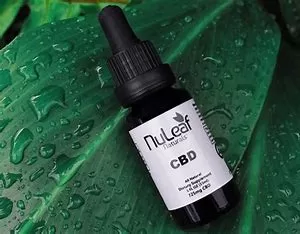
NuLeaf Naturals stands out for its clean extraction practices. The brand offers multiple CBD oil potencies, perfect for tackling a range of health issues.
Their Multicannabinoid Oil is a customer favorite, providing a rich blend of cannabinoids.
3. Batch CBD: The Botanical Blend Maestro
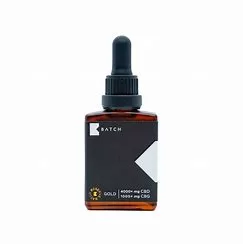
Batch CBD stands distinguished with its hand-crafted products. They emphasize minimal ingredients while focusing on scientific function.
Their full-spectrum CBD oils are rich in cannabinoids and terpenes, providing a comprehensive approach to wellness.
4. Premium Jane: The Potency Powerhouse
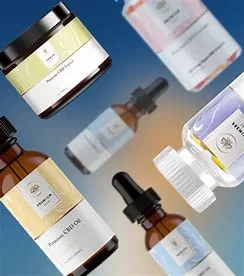
Premium Jane delivers a broad range of potencies and flavors, making it an excellent choice for CBD oil for anxiety. Whether you’re seeking a higher potency to combat your anxious feelings, Premium Jane has a variety of options at your disposal.
5. cbdMD: The Athlete’s Ally
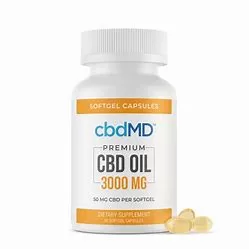
cbdMD produces an extensive line of products, including full-spectrum and broad-spectrum CBD oils in varied strengths and flavors. The brand’s mission is to create high-quality CBD products using innovation and superior customer service.
The Potential Benefits of Using CBD for Anxiety and Depression
Depression, characterized by persistent feelings of sadness, hopelessness, and loss of interest, is a common mental health disorder with serious implications.
Research suggests that CBD may have antidepressant-like effects, potentially offering relief from depressive symptoms.
For instance, a study in the Journal of Clinical Psychology found significant improvements in overall feelings of well-being and reduced depressive symptoms among participants who used CBD.
Here are a few benefits of CBD, however if you’re considering using CBD for depression, it’s crucial to consult with a healthcare provider for a proper diagnosis and treatment plan tailored to your needs.
Anti-Inflammatory Properties
Chronic inflammation is considered a contributing factor to depression. CBD has been shown to have anti-inflammatory effects, which could theoretically help alleviate symptoms of depression related to inflammation.
Serotonin Regulation
Serotonin is a neurotransmitter that plays a crucial role in mood and emotion. Some research suggests that CBD can affect the serotonin receptors in the brain, potentially helping to regulate mood.
Neuroprotection
Some animal studies suggest that CBD could have neuroprotective properties, which could be beneficial for brain health.
Anxiety Relief
CBD is most well-known for its potential to relieve anxiety, which is often comorbid with depression. By potentially reducing symptoms of anxiety, CBD could also have an indirect benefit on depressive symptoms.
Low Side-Effect Profile
Traditional antidepressants can come with a range of side effects including sexual dysfunction, sleep disturbances, and even increased risk of suicidal thoughts in some individuals. CBD is generally considered to have a lower side-effect profile, although more research is needed.
Adjunct Treatment
Some researchers are exploring the use of CBD as an adjunct to traditional antidepressant medications, with the hope that CBD could enhance the effectiveness of these medications or reduce side effects.
Limitations of using CBD for anxiety and depression
Although we have testimonies to the use of CBD for anxiety and depression, safety comes first and there are notable limitations to consider including:
Limited Research
Most of the research on CBD and depression is still in its early stages, with many studies conducted only on animals. More comprehensive human trials are needed to establish its efficacy.
Quality and Dosage
There’s a lack of standardization when it comes to the quality and dosing of CBD products, which could affect its efficacy for treating depression.
Drug Interactions
CBD has the potential to interact with other medications, including some types of antidepressants, which could either reduce their effectiveness or increase potential side effects.
Legal Status
The legality of CBD varies by jurisdiction, which can make it difficult for some individuals to obtain or use it as a treatment for depression.
Individual Variability
Just like any other form of treatment, CBD may not be effective for everyone, and individual results may vary.
Safety and Side Effects of CBD For Anxiety and Depression
CBD is generally well-tolerated, with a good safety profile as reported by the World Health Organization (WHO).
Safety Profile
Non-Psychoactive
Unlike THC, the psychoactive component in cannabis, CBD does not produce a “high,” making it less risky in terms of potential substance abuse.
Low Toxicity
Studies have suggested that CBD has a relatively low toxicity level, although extremely high doses might have a negative impact on liver health.
Non-Addictive
CBD is generally considered to be non-addictive, although more long-term studies are needed to confirm this.
However, it’s not without side effects.
Potential Side Effects of CBD for Anxiety and Depression
Gastrointestinal Issues: Some users report diarrhea, nausea, and vomiting after using CBD.
Fatigue and Drowsiness: CBD has the potential to induce sleepiness or drowsiness, particularly at higher doses.
Dry Mouth: A relatively common side effect, known colloquially as “cotton mouth,” can occur after using CBD.
Lowered Blood Pressure: High doses of CBD have been linked to a temporary drop in blood pressure, which could be problematic for people with low blood pressure or those taking medications for hypertension.
Liver Health: Some animal studies have raised concerns about the potential for CBD to affect liver enzyme levels, although the relevance of this to human users is not yet clear.
Interaction with Other Medications: CBD can interact with other drugs, particularly those that warn against consuming grapefruit, as both can interfere with cytochromes P450, a family of enzymes crucial to drug metabolism.
Additional Considerations
Quality and Purity: The CBD market is not well-regulated, leading to potential issues with product quality and purity. Some products may contain other compounds, including THC, or may not have the CBD levels they claim.
Pregnancy and Breastfeeding: There is limited research on the safety of using CBD during pregnancy or while breastfeeding. As a precaution, it is generally advised to avoid use during these times.
Pediatric Use: The safety of CBD in children is not well-studied, and it should only be used under medical supervision for treating specific conditions, like certain forms of severe epilepsy.
Legal Status: The legality of CBD varies by jurisdiction, which can affect its availability and quality.
Individual Variability: People react differently to CBD, so what may be a safe and effective dose for one person may not be for another.
DOSAGE of CBD for Anxiety & Depression
Determining the right dosage of CBD for anxiety & depression is a complex process, as it depends on various factors, including the individual’s body weight, the concentration of the CBD product, and the individual’s body chemistry.
Therefore, it’s advisable to start with a lower dosage and gradually increase it until you find the right amount that works for you.
CBD for Anxiety & Depression: Pros and Cons
Like any other therapeutic approach, using CBD oil for anxiety & depression comes with both pros and cons.
Pros of CBD for Anxiety and Depression
Non-Addictive: Unlike some medications used to treat anxiety and depression, CBD is generally considered to be non-addictive.
Low Side-Effect Profile: Compared to traditional pharmaceuticals like SSRIs or benzodiazepines, CBD tends to have fewer and less severe side effects such as drowsiness or gastrointestinal issues.
Fast-Acting: Anecdotal evidence suggests that CBD can offer quick relief for acute anxiety symptoms, although this can vary from person to person.
Multiple Forms: CBD oil can be ingested, vaporized, or applied topically, offering a range of methods for consumption to fit individual preferences.
Anti-Inflammatory: Chronic inflammation is sometimes linked to mood disorders. CBD’s anti-inflammatory properties could theoretically help address this aspect of mental health.
Serotonin Regulation: CBD is thought to interact with serotonin receptors, potentially helping to regulate mood and emotional well-being.
May Help with Comorbid Conditions: CBD is being studied for a wide range of therapeutic applications, from chronic pain to sleep issues, which may be comorbid with anxiety and depression.
Cons of CBD for Anxiety and Depression
Limited Research: While preliminary research is promising, there are limited rigorous clinical trials to establish the efficacy of CBD oil for treating anxiety and depression in humans.
Quality and Purity Concerns: The lack of regulation in the CBD market raises concerns about the quality and purity of products, including the possibility of contamination or misleading labeling.
Drug Interactions: CBD can interact with other medications, potentially reducing their effectiveness or increasing side effects.
Legal Issues: The legal status of CBD varies by jurisdiction, which can make obtaining a consistent supply difficult or risky in some areas.
Cost: High-quality CBD oils can be expensive, and they are not typically covered by insurance.
Dosage Uncertainty: There is still no universally recommended dosage for CBD, which can make it challenging to know how much to use.
Potential for Side Effects: While generally well-tolerated, some people experience side effects like gastrointestinal issues, drowsiness, or lowered blood pressure.
Not a Cure: While CBD may alleviate symptoms, it does not address the underlying causes of anxiety or depression and should not be considered a long-term solution without additional treatment.
Tips for Choosing the Best CBD for Anxiety and Depression
When buying CBD for anxiety and depression, you should research brands and products extensively. Look for pure, potent products from a trusted and respected brand.
Ensure the products are regularly tested by an independent third-party laboratory for purity and potency. Also, look for brands that use the industry-preferred CO2 extraction process.
Parting Remarks on CBD for Anxiety and Depression
While research on CBD’s efficacy in managing anxiety and depression is still ongoing, preliminary studies suggest potential benefits.
However, due to the complex nature of these mental health conditions and the varying effects of CBD on different individuals, it’s crucial to consult with a healthcare professional before incorporating CBD into your wellness routine.
In conclusion, while CBD presents promising potential for the treatment of anxiety and depression, more extensive research is needed to fully understand its effects and the best ways to utilize it for these purposes.
